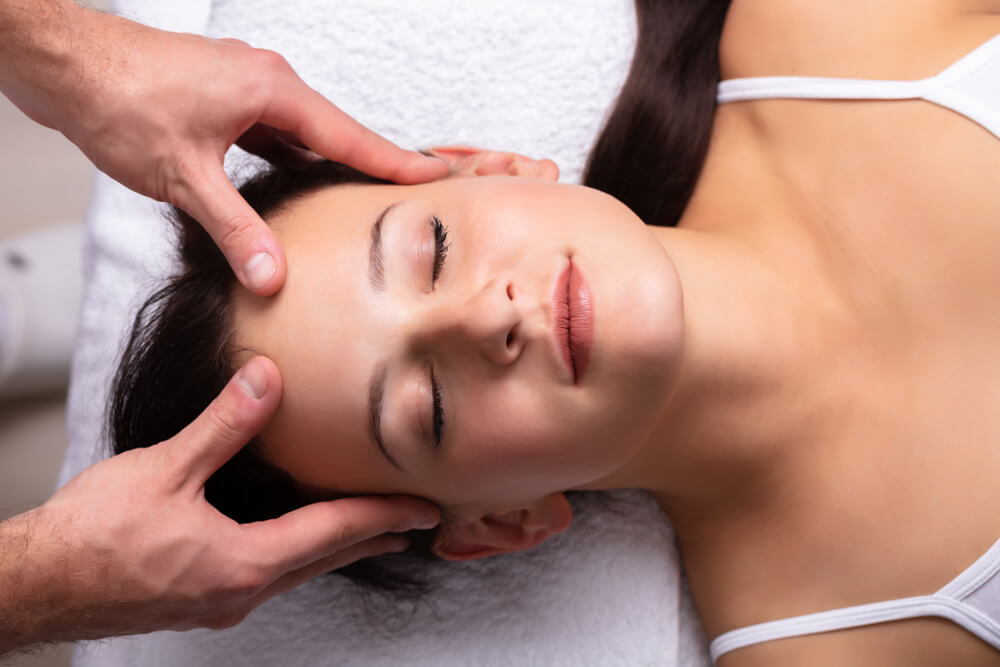Stress is a normal part of life. We have all experienced it at one point or another. But it’s when stress starts affecting our livelihood that it can become detrimental to our health.
The best way to combat and reduce stress is by engaging in activities that allow us to feel more relaxed and present.
Massage therapy is a proven method to help combat stress and reduce its negative effects on the mind and body. It has been shown that even just 10 minutes of massage therapy can activate the body’s natural happy hormones and leave you feeling more relaxed and less stressed.
The mood-enhancing benefits of massage therapy makes it easier to feel more calm and in control, reducing anxiety and naturally calming the body’s fight-or-flight response.
The symptoms of stress
While stress is integral to our survival, if your fight-or-flight response is continuously switched on it can lead to a variety of symptoms that may be detrimental to your health.
Some of the most common symptoms of stress include:
- Shortness of breath
- Heart palpitations
- Increased sweating
- Increased heart rate
- Tightness in the chest
- Knotted stomach
- Headaches
- Insomnia
- Depression, anxiety, irritability
These reactions to stress-inducing events or environments wreak havoc on your nervous system. Under stress, your body has to work harder in an effort to deliver a healthy oxygen and blood supply. If you’re experiencing chronic stress, your body is also having to keep up with a surge in glucose levels, heightening your risk of type 2 diabetes and digestive health issues such as acid reflux and constipation. Left unchecked, stress can lower the body’s immune system making you more prone to illness and can even lead to reproductive issues in both men and women.
The 5 ways massage reduces stress
Massage can reduce stress and its related symptoms by reducing your heart rate and calming the central nervous system. As a result, you will end up feeling more relaxed, rejuvenated, and focused.
- Massage triggers a relaxation responseMassage encourages the body to ‘slow down’, bringing it from a heightened state of anxiety to a more calm, relaxed state.The simple act of touch and methodic kneading invites the body to ease up and sink into relaxation. This emotional response is ignited by the body’s natural happiness and relaxation hormone, serotonin. Serotonin stabilizes our mood and also helps with basic functions such as eating, digestion, and sleeping.
- Massage helps with muscular tensionWhen you’re stressed, your body involuntarily tightens up causing the muscles to become tense. With the aid of massage therapy, the muscles can return to a relaxed state alleviating chronic pain.High levels of tension in the body can cause muscles to shorten, restricting movement and causing pain. Massage relieves tension by increasing tissue elasticity and stimulating the parasympathetic nervous systemThrough techniques such as trigger point therapy, rubbing, stretching, and stroking, the muscle fibers become more warm and loose. Patients may need more than one massage to remedy muscular tension, but will still notice considerable results after just one session.
- Massage reduced blood pressureMassage has been shown to improve blood circulation which in turn, helps to lower blood pressure.Massage therapy helps to calm the sympathetic nervous system, which is responsible for raising the blood pressure as a response to stress.Studies have shown that relaxation massage or aromatherapy massage – both modalities that are purely relaxation-focused – reduces blood pressure and heart rate much more effectively than deep tissue or sports massage. This is most likely due to the fact that calming, gentle touch releases that serotonin hormone causing our bodies to self-regulate and return to a natural and healthier function.
- Massage improves sleepBecause massage can directly influence the body’s production of serotonin, it can also help to release the sleep hormone melatonin.Direct pressure and the manipulation of muscles in the neck, shoulders, back, and even the legs and feet triggers melatonin production. The act of massage also reduces cortisol – the stress hormone – which can affect sleep patterns. In its place, the hormone dopamine stabilizes your mood and helps create that relaxed state of being that is needed to fall asleep soundly.Massage therapy can be aided with essential oils such as lavender, to further coax the body into that blissful state.
- Massage helps with mental health Massage can promote our psychological health by stimulating the receptors, nerves, and hormones responsible for mood regulation.During a moderate pressure massage, these receptors are triggered – bringing therapeutic relief to the client and overall improved mood and wellbeing.Massage has also shown to increase vagal nerve activity which is often low in depressed individuals. When this nerve is stimulated, cortisol levels decrease entering our bodies into a more relaxed and happy state.
Further studies have also indicated that following a massage, activity in the right frontal lobe of the brain (the part associated with negative emotion) lowered and shifted to the left frontal lobe which is responsible for mood and stress regulation.
So, why stress?
Massage therapy can be one of the best stress busters available! Alongside the quiet, relaxed atmosphere of a massage clinic, the act of massage itself coaxes our bodies into an improved state of wellbeing. And while stress can be temporarily alleviated with one massage session, identifying a long-term massage plan with a qualified massage therapist will be more beneficial for clients in managing chronic stress.
If you’re already a qualified massage therapist, or plan on studying to become one, by creating a quiet and welcoming atmosphere, you can help your clients reduce their stress levels through massage. And as they leave feeling much better than when they arrived, you’ll start to see them coming back time and time again.

